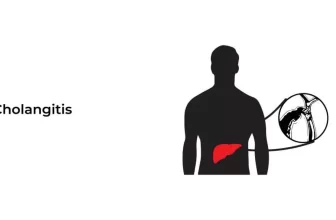Daytime sleepiness is the struggle of staying awake throughout the day or an aspiration to fall asleep during the day. The sentiment of insomnia might feel powerful when an individual is in a seating position like driving or performing work while seated. Daytime sleeping can be seen as normal caused by a lack of proper sleep at night; however, immoderate sleepiness cannot be viewed as normal.
What causes excessive Daytime Sleepiness?
There are numerous causes of excessive daytime sleepiness, such as lack of sufficient sleep, obstructive sleep apnea, sleep disorder, sedating medications, and psychiatric conditions. Eight hours is an average sleeping time that an individual must follow to be fresh. Lack of sleep makes the brain and the body tired. However, lack of sleep can be caused by various reasons. Waking up several times to use the washroom can damage sleep. Secondly, smoking keeps most people falling asleep if an individual inhales an excessive amount of cigarettes. Similarly, performing a workout makes an individual tired and unable to complete sleeping needs at night that may fall asleep during the daytime. It is not always necessary that excessive sleepiness comes with a lack of sleep; it can also be caused by sleep illness or weak health conditions such as stress, tension, overweight, depression, or sleep disorder.
Types of Sleep Illnesses:
- Sleep apnea: It is a sleeping condition where an individual unusually inhales and exhales. It tends to damage the body’s sleeping quality and oxygen flow, which can harm an individual’s health.
- Narcolepsy: Sleep illness discards sleep as the brain cannot work during sleepiness and awakens both. An individual usually falls asleep in a minute which is deemed abnormal.
Symptoms of Daytime Sleepiness
- Difficulty being alert: People who are mostly inactive in performing the tasks and feel tired encounter trouble staying alert.
- Mostly being irritated: Lack of sleep and sleepiness can cause an individual to be pissed off on normal subjects.
- Memory Problem: People with a sleep disorder are likely to have memory problem as they are most likely to be in a state of insomnia and does not tend to remember things.
- Difficulty in focusing: The sleep disorder damages the ability to concentrate in activities and decision-making. They usually take a long time to perform tasks and encounter difficulty in exercising new ideas.
Treatments of Daytime Sleepiness
The treatments will vastly rely upon the cause of sleep disorder; however, an individual must try to complete the recommended eight-hour sleep to stay active during day time. Moreover, consulting a doctor would aid in dealing with sleep illness. The physician would study the entire history of the person and then prescribe the related medication to the patient to treat the disease.
Similarly, if the person has a sleep disorder caused by depression or stress factors that create a hurdle in performing tasks effectively, one must avoid the stress and keep the mind relaxed.
When should an individual visit the doctor?
An individual must visit the doctor if they mostly experience daytime tiredness and sleepiness that disturb their routine activities.
The consultant would then examine the individual’s sleep routine and may also investigate from a sleeping partner about the patient’s snoring and body movement to identify the reason behind the sleepiness. If diagnosed with any sleep disorder, the doctor might refer an individual to a sleep specialist.
References:
- https://www.mayoclinic.org/diseases-conditions/narcolepsy/symptoms-causes/syc-20375497 retrieved on March 30, 2022.
- https://www.sleepassociation.org/sleep-disorders/more-sleep-disorders/excessive-daytime-sleepiness/?msclkid=892eee03af8a11ec9264d306dce8a261 retrieved on March 30, 2022.
- https://www.sleepfoundation.org/excessive-sleepiness?msclkid=613f5de3af8411ec85cd4e732334fea4 retrieved on March 30, 2022.







